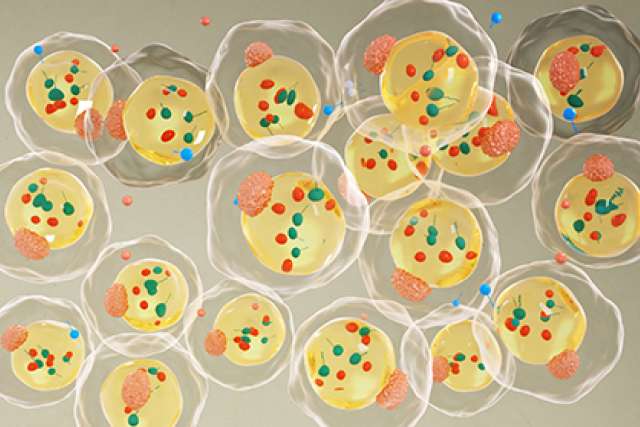In a study with mice, researchers at the UCLA Jonsson Comprehensive Cancer Center have identified a new mechanism for delivering a drug that can help stop tumors from growing and keep cancer from recurring. The scientists found that they could reengineer adipocytes — fat cells that provide fatty acids with the energy needed for tumors to grow and spread — to reverse their role in tumor development and deliver cancer-fighting drugs directly to the area of the body immediately surrounding the tumor.
BACKGROUND
Although there have been many improvements over the past decade in treatment techniques for solid tumor cancers (such as melanoma and breast and lung cancers), the disease often recurs and it can be even more aggressive after therapy. One way to prevent cancer from recurring is to deliver drugs directly to the tumor.
METHOD
The researchers theorized that because fat cells are plentiful in the human body and can be easily isolated and purified, they could potentially serve as an efficient drug delivery system. However, tumor cells cause fat cells to release the fatty acids that support tumor growth. To overcome that issue, the researchers added a cancer-fighting drug to the fat cells.
The team tested the approach by using engineered fat cells to carry lipid-linked doxorubicin, a commonly used chemotherapy drug. They not only found the delivery mechanism successfully carried the drug to the tumor site, but also that the drug inhibited tumor growth and recurrence, and that it had minimal side effects in the mice.
IMPACT
By utilizing fat cells with medicated capsules embedded in them, the team demonstrated that the lipid metabolism pathway can be used to deliver drugs directly to solid tumors. If it is found to be safe and effective in people, the approach could eventually be useful not only for delivering cancer drugs to tumors, but also for treating other lipid metabolism-related conditions, such as diabetes and fatty liver disease.
AUTHORS
The study's senior author is Zhen Gu, a professor of bioengineering at the UCLA Samueli School of Engineering, and a member of the Jonsson Cancer Center and of the California NanoSystems Institute at UCLA. The first author is Di Wen, a UCLA research scientist.
JOURNAL
The study is published online in Matter.



